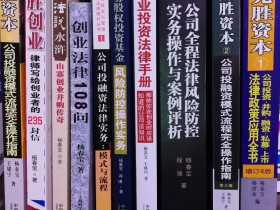2020年伊始,一场突如其来的新型冠状病毒肺炎疫情席卷大江南北,令中国的经济发展蒙上了一层阴影,所幸中国政府采取了积极措施进行应对,目前已基本遏制住本国疫情,企业复产复工也都基本得以恢复。然而,疫情对经济的影响已然显现,在华的外资企业自然无法独善其身。英国商会对其会员企业的调查结果显示,高达97%的被调查公司认为本次疫情对其运营活动造成了不同程度的负面影响。人才是企业发展的核心要素,因此,劳动人事问题(包括降薪、经济性裁员、复产复工、工伤认定等)成了企业在解决经营困境的同时亟需解决的问题。本团队近期收到不少外资企业客户关于疫情影响下劳动人事问题的法律咨询,因此拟以此文就相关问题进行简述,以期对广大在华外资企业提供有益参考。
At the beginning of the year 2020, a sudden outbreak of the Novel Coronavirus Pneumonia swept over mainland China, and casted a shadow over China’s economic development. Fortunately, our Chinese government has taken proactive measures and has basically restrained further outbreak inboard, as a result of which, production and business operation of most enterprises have been resumed. However, the impact of the epidemic on economy has shown, certainly, those foreign invested enterprises (“FIEs”) in mainland China cannot be immune. According to the result of a survey with those company members of British Chambers of Commerce in China, 97% of the surveyed members believe that the virus has brought varying degrees of negative impact on their operations. Talent is the core element of enterprise development, therefore, labor and personnel issues (including pay cut, economic layoff, resumption of production and operation, identification of work-related injury, etc.) have become key issues to be resolved urgently while business distress being solved by enterprises. Recently, our team have received many inquiries from our FIE clients regarding those labor and personnel issues due to the impact of epidemic, hence, this article is intended to brief relevant issues to provide useful reference for those FIEs in mainland China.
1. 是否能够以疫情为由实施降薪或进行经济性裁员?
Whether pay cut or economic layoff on the ground of the epidemic is legal?
如前所述,疫情必然会给外资企业的经营造成负面影响,然而,外企是否就能因此实施降薪或进行经济性裁员呢?根据人社部办公厅《关于妥善处理新型冠状病毒感染的肺炎疫情防控期间劳动关系问题的通知》,“企业因受疫情影响导致生产经营困难的,可以通过与职工协商一致采取调整薪酬、轮岗轮休、缩短工时等方式稳定工作岗位,尽量不裁员或者少裁员”。如何理解这一表述呢?我们理解,在生产经营困难的情况下“调整薪酬”,自然只可能调低而不可能调高,很显然,相关部门并不反对企业因经营困难而实施降薪;而对于因疫情而导致的经济性裁员,官方的措辞为“尽量不或少”裁员,而非“禁止”裁员,也就是说,劳动人事部门对此也采取了较为宽容的态度。不过,鉴于人社部原则上倡导企业避免或减少裁员,因此,对于确因疫情导致经营困难而需实施经济性裁员的外资企业,建议应在专业律师的协助下,并在严格遵循《劳动合同法》等相关法律法规关于裁员的具体流程和规范的前提下进行相关操作,以确保合法合规。此外,对于实施降薪,也应在与员工协商一致的基础上进行,以避免因违反法律的强制性规定而导致的赔偿责任[1]。
As above-mentioned, the outbreak of epidemic will inevitably bring negative impact on the business operation of FIEs, however, whether FIEs have the right to implement pay cut or economic layoff on the ground of the epidemic? In accordance with the Notice of the General Office of the Ministry of Human Resources and Social Security on Properly Handling Labor Relation Issues during the Period for Prevention and Control of the Novel Coronavirus-infected Pneumonia Epidemic, where an enterprise has difficulties in production and operation due to the impact of epidemic, it may stabilize posts by adjusting salaries, rotating posts and taking holidays, shortening working hours or other means through negotiating with employees and by reaching an agreement, so as to avoid or reduce layoffs to the greatest extent. How to understand this expression? We understand that the “salary adjustment” due to difficulty in production and operation can only be pay cut instead of pay increase. Obviously, relevant authority does not oppose such pay cut by enterprises due to operation difficulty. As to the economic layoff resulted by epidemic, the official expression is “to the greatest extent to avoid or reduce” instead of “to prohibit” layoff, in other words, our human resource authority has taken a relatively tolerant attitude towards it. However, given that Ministry of Human Resources and Social Security in principle requires enterprises to avoid or reduce layoffs, therefore, for those FIEs which really need to implement economic layoffs due to difficulties on business operations resulted from epidemic, we suggest that they shall be supported by professional lawyers to strictly follow the rules and procedures regarding layoff under relevant laws and regulations such as Labor Contract Law, thus to ensure the legality and compliance thereof. In addition, the pay cut shall be implemented based on the agreement with employees, to avoid any liability caused by violation of mandatory provisions of law[2].
2. 如何有序推进复产复工?
How to resume production and business operation orderly?
考虑到疫情爆发于春节假期中,不少外企员工纷纷回家过年或去境内外旅游。而短时期内巨大的人员流动势必会给疫情防控带来极大挑战,因此,复工复产不可能一蹴而就。如何在遵守疫情防控相关规定的前提下,尽快恢复生产经营活动,以最大限度减少疫情对企业造成的损失?在这方面,我们的一家英资客户,全球著名的地产经纪商的做法就非常值得借鉴。
根据该客户的相关政策:首先,在前期合理安排延长休假与居家办公的基础上,自2020年3月2日起,在严格执行返沪人员居家隔离规定的前提下,采取“现场办公(3天)+居家办公(2天)”相结合的过渡期办公模式;其次,实行错峰上下班;再次,针对尚在隔离期或尚未返沪的员工,除有条件实施居家办公的之外,统一以带薪年休假抵扣未到岗时间,年休假抵扣完毕尚无法正常返岗的,则按国家关于停工、停产期间的工资支付规定办理。或许有人会提出质疑:企业可以单方面安排其员工的带薪年休假而无需征得员工同意吗?对于这一点,《职工带薪年休假条例》中是这么规定的:单位根据生产、工作的具体情况,并考虑职工本人意愿,统筹安排职工年休假。意即:用人单位有权对其职工的年休假做出具体安排,只不过在做出安排的同时,应“考虑”职工的意愿,而非“征得职工的同意”。换言之,企业有权单方面对其员工的带薪年休假(包括休假的具体时间和天数等)做出安排而无需征得员工同意。不过,我们也留意到,在人社部发布的《关于做好新型冠状病毒感染肺炎疫情防控期间稳定劳动关系支持企业复工复产的意见》中提及,对不具备远程办公条件的企业,应与职工协商优先使用带薪年休假、企业自设福利假等各类假期。如广大外企拟在疫情时期安排员工休假,建议尽量与其进行充分沟通,并保留沟通痕迹(如电子邮件或微信聊天记录等),在实在无法与员工达成一致的情况下,可单方面出具书面的《休假通知》,并在通知中充分阐明企业做出安排的理由和与员工进行沟通的过程,以避免产生不必要的劳动纠纷。
Given that the outbreak of epidemic happened during Spring Festival, many employees of FIEs went back to their hometowns or made domestic/overseas travels. Movement of personnel within a short period will absolutely impose enormous challenges on the prevention and control of the epidemic. Therefore, it is impossible to resume the production and business operation overnight. How to resume the production and business operation as soon as possible with the compliance of relevant regulations regarding the prevention and control of epidemic, thus to minimize the loss of enterprises incurred due to epidemic? Action taken by one of our Britain-invested clients, a world-renowned real estate agent is worthy of attentions. According to the relevant policy of our client: firstly, based on proper arrangement of extension of holidays and work-from-home at earlier stage, the transitional office mode of “3 days of on-site + 2 days of work-from-home” has been taken since Mar. 2 of 2020 when strictly complying with home quarantine regulation of return-to-Shanghai personnel; secondly, peak commute has been implemented; thirdly, for those who are still at quarantine or out of bound, their non-attendance time will be deducted by paid annual leave (except for those who are able to work from home), and, if they still cannot back to work normally after all the paid annual leave days are deducted, the national regulation in relation to wage payment during suspension will be implemented. There may be question: whether enterprise has the right to unilaterally arrange the paid annual leave of its employees without their consent? To this question, Regulations on Paid Annual Leave of Employees has specified as such: employers shall plan and arrange for their employees to take annual leave according to the actual production and work status and taking into account the personal preference of the respective employees. That is to say, employers have the right to arrange the annual leave of their employees by taking into consideration of the will of employees, instead of obtaining their consent. In other words, enterprise shall have the right to unilaterally make arrangement on the paid annual leave of its employees (including the time and length thereof, etc.) without their consent. But we also notice that, it is mentioned in Opinions on Stabilizing Employment Relationship during the Period for Prevention and Control of the Novel Coronavirus-infected Pneumonia Epidemic to Support Enterprises in Resuming Work and Production released by Ministry of Human Resource and Social Security that, the enterprises not meeting the remote working conditions shall negotiate with their employees on the priority to take various kinds of paid annual leave and welfare leave given by the enterprises themselves. When FIEs tends to arrange annual leave of their employees during the epidemic period, it is suggested that sufficient communications shall be made with their employees and the traces of communication shall be kept such as email or we-chat record. In case of failure in reaching an agreement, a written unilateral Annual Leave Notice can be issued, in which the reason for leave arrangement and communication process shall be clearly stated, to avoid any unnecessary labor dispute.
3. 复工复产后,员工若感染新冠肺炎,能否认定为工伤?
If certain employee is infected after resumption of production and business operation, whether it can be identified as work-related injury?
对于此次疫情“吹哨人”李文亮医生因感染新冠肺炎病毒而不幸离世,武汉市人社局认定其系“在工作时间和工作场所内,因工作原因受到事故伤害”的情形,因此认定为工伤。那么,普通的外企职员如感染了新冠肺炎,是否能够被认定为工伤呢?
As to the unfortunate death of Doctor Wenliang Li, the “Whistleblower” of the epidemic due to the Novel Coronavirus, bureau of human resource and social security of Wuhan identified it as work-related injury which is attributed to the situation of being injured in an accident in the course of work during working hours and within work premises. So, if normal employees of FIEs are infected with the virus, whether they can be identified as work-related injury?
根据人社部就《关于因履行工作职责感染新型冠状病毒肺炎的医护及相关工作人员有关保障问题的通知》进行的说明,如果不是从事新冠肺炎预防和救治的医护及相关工作人员,感染新冠肺炎不能认定为工伤。然而在此前,广东和浙江均明确[3]:劳动者因工作原因感染新冠肺炎的,应认定为工伤。尽管各地在劳动人事方面的政策存在较大差别,经研究与疫情相关的工伤判例,我们倾向于认为普通外企职员如在工作中感染新冠肺炎,被认定为工伤的可能性较大。至于何为“工作原因”,经研究与疫情相关的工伤判例可知:虽然工作本身不会导致患病,但是如果在劳动者做好必要的防护措施的情况下,经查明确系因用人单位未给劳动者提供安全的工作环境,从而导致劳动者患病,那么司法机关还是倾向于认定劳动者系工伤。
According to the interpretation of Ministry of Human Resource and Social Security regarding Notice on Issues Concerning the Security of Medical Care and related Staff Infected with Novel Coronavirus Pneumonia in Performing Their Duties, those infected personnel who are not medical care and other related staff engaging in the prevention and treatment in respect of the Novel Coronavirus, shall not be identified as work-related injury. However, before this statement, both Guangdong and Zhejiang Province defined that certain employee who is infected with Novel Coronavirus Pneumonia due to work reason shall be identified as work-related injury[4]. Although there are big difference among various places on labor and personnel policies, we tend to consider that there exists large possibility for normal employees of FIEs being infected with the virus to be identified as work-related injury based on research of judicial cases relating to epidemics. As for what is “work reason”, it can be known from several judicial cases regarding work-related injury due to epidemic that, although work itself does not cause infection with epidemic, but, if it can be ascertained that certain employee who has taken necessary protection measures is infected with epidemic due to lack of safe working environment, judicial authorities will tend to identify such situation as work-related injury.
4.在疫情期间,在华外籍高管们应如何进行自我管理?
For those FIEs’ foreign executives based in China, how to manage themselves during the epidemic period?
近期,“拜尔跑步女”事件上了热搜。据相关报道,拜耳北京公司一澳籍女高管返回北京后,拒不按规定居家隔离,执意外出跑步且不戴口罩,面对防疫人员劝说,该女子不听劝告,且态度蛮横。该事件在网上持续发酵,最终以拜尔公司开除该女员工画上句号。拜尔公司在公开声明中称,系“根据相关规定”辞退该名女员工。拜尔公司的这一决定自然是大快人心,不过也引发了一些质疑:其是否有权约束员工在工作时间以外的行为?这样的开除决定是否合法?在(2013)长民四(民)初字第347号劳动合同纠纷案中,司法机关给出了肯定的回答。某航空公司一空姐因于非工作时间在微博上发表对该航空公司的不利言论而被航空公司以严重违反内部规章制度为由解雇,法院最终支持了该航空公司的解雇决定,理由是:基于微博的开放性以及在现代社会的影响力和传播力,空姐的言论已经对其雇主的声誉以及品牌建设造成了实质性的不利影响威胁,其行为违反了其雇主的内部规定。因此,我们在此友情提醒广大外企的外籍高管们,切勿步“拜尔跑步女”的后尘,在疫情期间,应务必遵守中国国家和地方关于出入境和疫情防控的相关规定和政策,自觉接受隔离,并听从防疫人员的建议。一旦出现疑似感染症状,应立即就近接受诊治,并如实说明近期活动和密切接触人员等情况,以便有关部门迅速采取防控措施。同时,我们也建议外企尽快修订、完善《员工手册》和相关的内部规章制度,以确保公司在类似事件发生时能够合法合规地迅速、果断采取措施。
Recently, the event of “running woman of Bayer” has become one of the hottest searches. It is reported that one female Australian executive of Bayer Beijing company refused to comply with relevant regulation of home quarantine and insisted on running outdoor without mask, in addition, when being persuaded by anti-epidemic worker, she rejected the advice with an arrogant attitude. The event has kept simmering on internet and the result of which is that such female employee was finally fired by Bayer. It is indicated in Bayer’s public statement that its fire decision was made “in accordance with relevant regulations”. Such decision of Bayer has cheered people greatly, yet raised certain question: whether it has the power to manage behaviors of its employees out of working hours? and, whether such fire decision is legal? In one labor contract dispute which was judged in 2013, People’s Court of Changning District in Shanghai gave a positive answer. One air hostess of certain airline company was fired by the company due to her negative comments made on microblog against the company at spare time, the cause of which was severely violation of internal rules and regulations. The court finally supported the fire decision of the company with the reason that, as microblog had openness, big influence and communication power, the comments of such air hostess had constituted a threat of material adverse impact on the reputation and brand construction of her employer, so that her behavior had violated the internal regulations of her employer. Therefore, we hereby kindly remind those foreign executives of FIEs, please never follow “running woman of Bayer”, and please be sure to comply with relevant regulations and policies regarding prevention and control of epidemic as well as immigration, consciously accept quarantine, and follow the advice of anti-epidemic workers. Those who have symptoms of infection shall seek immediate medical treatment at the nearest hospital and truthfully describe situations such as their recent activities and close contacts to relevant authorities for rapid prevention and control measures. Meanwhile, it is suggested that FIEs shall revise and improve their Employee Handbook as well as relevant internal regulations, thus to ensure the prompt and decisive measures to be taken on the basis of legality and compliance when similar event happens.
[1] 《劳动合同法》
Labor Contract Law
第三十条 用人单位应当按照劳动合同约定和国家规定,向劳动者及时足额支付劳动报酬。
用人单位拖欠或者未足额支付劳动报酬的,劳动者可以依法向当地人民法院申请支付令,人民法院应当依法发出支付令。
Article 30 Employers shall promptly pay labor remuneration to workers in full amount pursuant to the stipulations of the labor contract and the provisions of the State.
Where an employer defaults on payment or fails to promptly pay labor remuneration in full amount, a worker may apply to a People's Court for an order for payment and the People's Court shall issue an order for payment pursuant to the law.
第三十八条 用人单位有下列情形之一的,劳动者可以解除劳动合同:
Article 38 Under any of the following circumstances, a worker may rescind the labor contract:
……
(二)未及时足额支付劳动报酬的;
(2) where the employer fails to promptly pay labor remuneration in full amount;
……
第四十六条 有下列情形之一的,用人单位应当向劳动者支付经济补偿:
Article 40 Under any of the following circumstances, the employer shall make economic damages to the worker:
(一)劳动者依照本法第三十八条规定解除劳动合同的;……
(1) the worker has rescinded the labor contract pursuant to the provisions of Article 38;……
第八十五条 用人单位有下列情形之一的,由劳动行政部门责令限期支付劳动报酬、加班费或者经济补偿;劳动报酬低于当地最低工资标准的,应当支付其差额部分;逾期不支付的,责令用人单位按应付金额百分之五十以上百分之一百以下的标准向劳动者加付赔偿金:
Article 85 Under any of the following circumstances, the labor administrative authorities shall order the employer to pay labor remuneration, overtime wage or economic damages within a stipulated period; where the labor remuneration is lower than the minimum wage standard at the locality, the shortfall shall be paid; where payment is not made within the stipulated period, the employer shall be ordered to pay compensation to the worker based on 50% to 100% of the amount payable:
(一)未按照劳动合同的约定或者国家规定及时足额支付劳动者劳动报酬的;……
(1) the employer fails to pay labor remuneration to a worker pursuant to the provisions of the labor contract or fails to promptly pay labor remuneration in full amount pursuant to the provisions of the State;……
[2] Labor Contract Law
Article 30 Employers shall promptly pay labor remuneration to workers in full amount pursuant to the stipulations of the labor contract and the provisions of the State.
Where an employer defaults on payment or fails to promptly pay labor remuneration in full amount, a worker may apply to a People's Court for an order for payment and the People's Court shall issue an order for payment pursuant to the law.
Article 38 Under any of the following circumstances, a worker may rescind the labor contract:
……
(2) where the employer fails to promptly pay labor remuneration in full amount;
……
Article 40 Under any of the following circumstances, the employer shall make economic damages to the worker:
(1) the worker has rescinded the labor contract pursuant to the provisions of Article 38;……
Article 85 Under any of the following circumstances, the labor administrative authorities shall order the employer to pay labor remuneration, overtime wage or economic damages within a stipulated period; where the labor remuneration is lower than the minimum wage standard at the locality, the shortfall shall be paid; where payment is not made within the stipulated period, the employer shall be ordered to pay compensation to the worker based on 50% to 100% of the amount payable:
(1) the employer fails to pay labor remuneration to a worker pursuant to the provisions of the labor contract or fails to promptly pay labor remuneration in full amount pursuant to the provisions of the State;……
[3]广东省政府新闻办于2020年2月6日举行的疫情防控新闻发布会上明确:劳动者在工作期间因工作原因感染新型冠状病毒肺炎,应根据《社会保险法》和《工伤保险条例》认定为工伤,根据《工伤保险条例》的规定享受工伤保险待遇。
根据浙江省高级人民法院民一庭关于印发《关于规范涉新冠肺炎疫情相关民事法律纠纷的实施意见(试行)》的通知》(浙高法民一[2020]1号)第一条第5款:劳动者在疫情防控期间因履行工作职责而感染新冠肺炎的,应认定为工伤,依法享受工伤保险待遇。
[4] On Feb.6 of 2020, the Press Office of Guangdong Municipal Government specified at the press conference regarding prevention and control of epidemic that, certain employee who is infected with Novel Coronavirus Pneumonia due to work reason during working hours shall be identified as work-related injury in accordance with Social Security Law and Regulations on Work-related Injury Insurance, and shall enjoy work-related injury insurance benefits according to Regulations on Work-related Injury Insurance.
It is specified in Item 5 of Article 1 under the Implementation Opinions of the First Civil Division of Supreme People‘s Court of Zhejiang Province on Standardizing Relevant Civil Legal Disputes in relation to Novel Coronavirus Pneumonia (trial) that certain employee who is infected with Novel Coronavirus Pneumonia due to work reason during the prevention and control period of epidemic, shall be identified as work-related injury and shall enjoy work-related injury insurance benefits by law.




